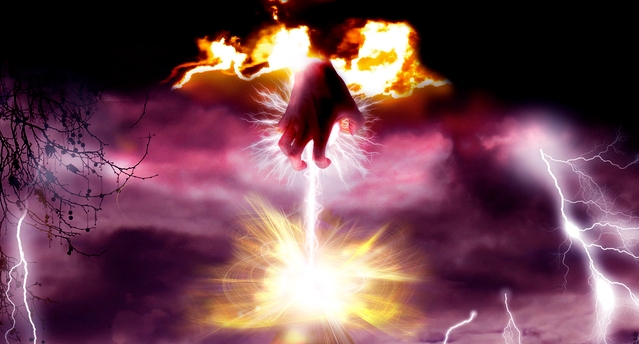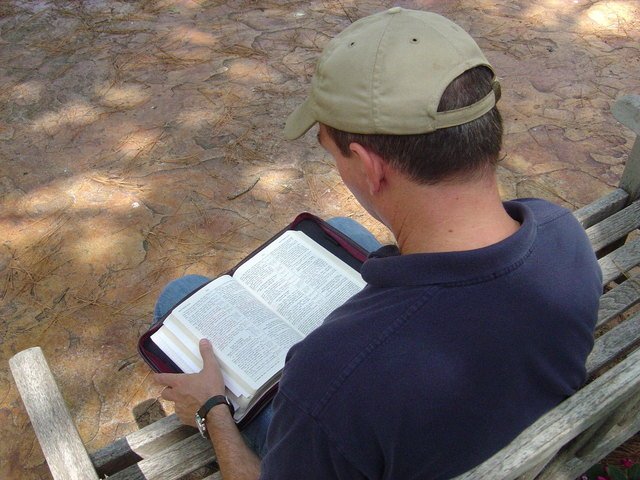MERCY OR WRATH

INTRODUCTION
Mercy or wrath concept is given throughout God's Word with a strong urging to allow mercy to be extended by a caring God. Scripture reveals: God sent not his Son (the Lord Jesus Christ) into the world to condemn the world but that the world through him might be saved. He that believes on him is not condemned but he that believes not is condemned already, because he has not believed in the name of the only begotten Son of God (John 3:17-18).
Apostle John wrote: He that believes on the Son (the Lord Jesus Christ) has everlasting life: and he that believes not the Son shall not see life; but the wrath of God abides (remains) on him (John 3:36). God's love and mercy were clearly demonstrated at the Cross of Calvary when Jesus died for our sins. The above scriptures reveal a choice of mercy or wrath; dependent on one's acceptance or rejection of Jesus as Lord and Savior.
Mercy or Wrath
God Delights in Mercy
The Prophet Micah noted: Who is a God like unto you, that pardons iniquity and passes by (over) the transgression of the remnant of his heritage? He retains not his anger forever, because he delights in mercy. He will turn again, he will have compassion on us; he will subdue our iniquities; and will cast all their (our) sins into the depths of the sea (Micah 7:18-19).
The forgiveness and pardon of a merciful and gracious God toward a sinful mankind is declared by Micah based on the redemptive work of a Savior. There are those in this world that are walking away from God's provision for mankind; but thank God for those who have embraced the redemptive work of Christ as Lord and Savior.
Knowing First Hand
the Mercy of God
The mercy of God was not only echoed by the Prophet Micah; but similarly declared by the Psalmist David, who knew first hand of the mercy of God in his own life. He wrote: The Lord is merciful and gracious, slow to anger, and plenteous (abounding) in mercy. He will not always chide (strive): neither will keep his anger forever.
He has not dealt with us after our sins; nor rewarded us according to our iniquities. For as the heaven is high above the earth, so great is his mercy toward them that fear him. As far as the east is from the west, so far has he removed our transgressions from us (Psalm 103:8-12).
A Turning Towards
Wrath
We live in a world that the mercy or wrath pendulum is swinging towards wrath; with those seeking to dominate showing no mercy towards those in opposition. World domination is in the forefront with Marxism and Socialism, cousins of Communism, rearing its ugly head to deceive, dominate, and control.
There are those who are seeking to be the dominating factor; spreading their influence, to deceive the masses and gain control; if one does not line up with their agenda, it is no longer a choice of mercy or wrath but wrath on their part.
God's Wrath Displayed

Mercy or wrath is mentioned numerous times in God's Word including the pre-Flood days of Noah and concerning Sodom and Gomorrah. Apostle Peter noted: God spared not the old world (pre-Flood days of Noah) but saved Noah, the eighth person, a preacher of righteousness, bringing in the flood upon the world of the ungodly; and turned the cities of Sodom and Gomorrah into ashes condemned them with an overthrow (destruction), making them an example to those that after (afterward) should live ungodly (2 Peter 2:5-6).
Scripture reveals: God saw that the wickedness of man was great in the earth, and that every imagination of the thoughts of his heart was only evil continually. And it repented the Lord that he had made man in the earth, and it grieved him at his heart (Genesis 6:5-6). The earth was corrupt before God, and the earth was filled with violence (Genesis 6:11).
Mercy Based on Repentance
The mercy or wrath concept is best illustrated in the case of Nineveh. Scripture reveals: The word of the Lord came to Jonah (a prophet of God), saying: Arise, go to Nineveh, that great city, and cry (sound the alarm) against it; for their wickedness is come before me (Jonah 1:2).
And as Jonah began to enter into the city, a day's journey (on the first day), he cried (cried out), and said, Yet forty days, and Nineveh shall be overthrown (destroyed) (Jonah 3:4). The people of Nineveh believed God, and proclaimed a fast, and put on sackcloth (a sign of repentance), from the greatest of them, even to the least of them (Jonah 3:5).
God saw their work, that they turned away from their evil way, and God repented (relented) of the evil, that he had said that he would do to them, and he did it not (Jonah 3:10). It was noted that God did not change in His ultimate intention toward the Ninevites, rather they changed in their attitude toward Him. On the basis of that change, God could deal with them in grace, rather than His wrath being exercised, as their failure to repent would have necessitated.
Tribulation and Anguish or
Salvation and Mercy

Apostle Paul wrote: The wrath of God is revealed from heaven against all ungodliness and unrighteousness of men, who hold (suppress) the truth in unrighteousness (Romans 1:18). To them that are contentious (self-seeking), and do not obey the truth, but obey unrighteousness; indignation and wrath, tribulation and anguish, upon every soul of man that does evil, of the Jew first, and also of the Gentile (all of mankind); but glory, honor, and peace to every man that works good to the Jew first, and also to the Gentile (Romans 2:8-10).
Thank God for the repentant in heart! Apostle Paul noted that to such God has not appointed to wrath, but to obtain salvation (mercy) through Jesus Christ (1 Thessalonians 5:9); with mercy or wrath depending on acceptance or rejection.
Create or Destroy
It was noted that God, having power and authority to create, also has power and authority to destroy that which He creates; this was shown by the Flood. When humans become so evil, that every thought and imagination of the human mind and heart was only evil continually, God decided to destroy from the earth the humans He had created. To give live and take away life are both within God's authority.
We are seeing a blossoming forth of evilness that is under the descriptive narrative of the pre-Flood days of Noah, Sodom and Gomorrah, and Babylon the hold of every foul spirit. The mercy or wrath concept exists as long as breath of life remains.
Flaunting God's Offer
of Mercy
Apostle Peter wrote: The Lord is not slack concerning his promise (destruction of the ungodly), as some men count slackness: but is long-suffering to us-ward, not willing that any should perish, but that all should come to repentance (His mercy or wrath provision for mankind) (2 Peter 3:9).
Whereby the world that then was (pre-Flood days of Noah), being overflowed with water, perished: but the heavens and the earth which are now, by the same word are kept in store, reserved unto fire against (until) the day of judgment and perdition (destruction) of ungodly men (2 Peter 3:6-7).
In the Flood all were destroyed, with the exception of Noah, and his family, with only eight souls surviving the wrath of God upon mankind. In the destruction of Sodom and Gomorrah, and the cities of the plain roundabout, only Lot, and his family (with the exception of his wife) survived the devastation of that day. Why does man continue to flaunt God's offer of mercy; by not allowing His mercy to be extended?
Warning of What Is
Coming
God's Word reveals the mercy or wrath concept throughout both the Old and New Testament. One needs to realize that the world has become a playground of demonic influences; supported by man, in an attempt to tug the soul of man from God's mercy.
Jesus spoke of the lack of concern as in the days of Lot: As it was in the days of Lot; they did eat, they drank, they brought, they sold, they planted, they built; but the same day that Lot went out of Sodom it rained fire and brimstone from heaven (God's wrath), and destroyed them all. Even so shall it in the day when the Son of man (Jesus' return) shall be revealed (Luke 17:26-29).
It was noted that apathy in the world must not dull the expectation of deliverance from the wrath to come. Wholehearted devotion to God, and His Son (the Lord Jesus Christ) the Savior of the world; as opposed to loving possessions or life itself, will be the only refuge in that day.

GOT QUESTIONS A Website where Bible questions are answered. With over 4,500 answers to frequently asked Bible questions published online, approximately 75% of the questions have answers available instantly. This Website is an easy way to search out any questions you may have.
YOU MAY BE INTERESTED IN
-
God's Directions for Life
God's Directions for Life website designed to help one identify with the Word of God concerning the economic, political, and religious times in which we live.
